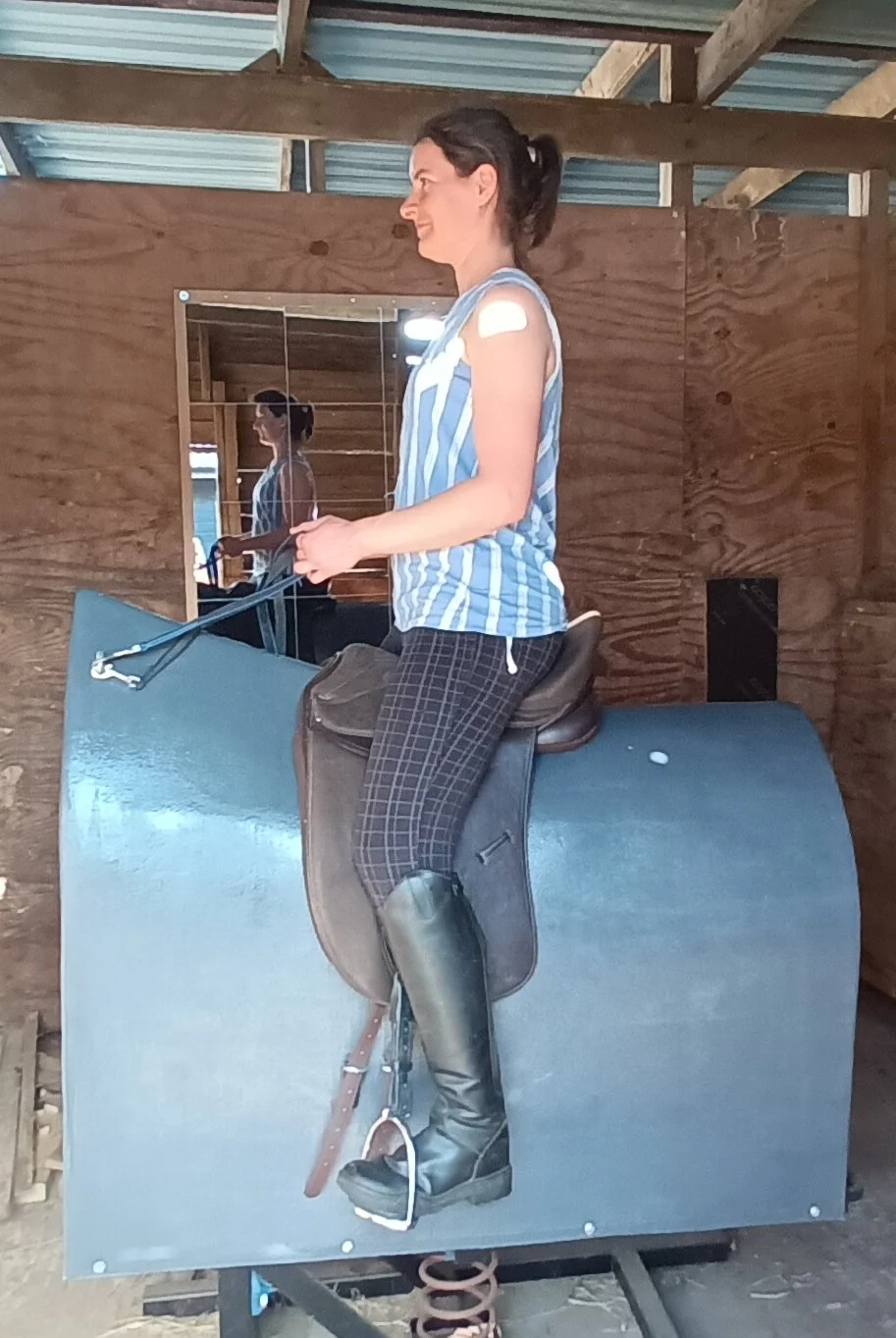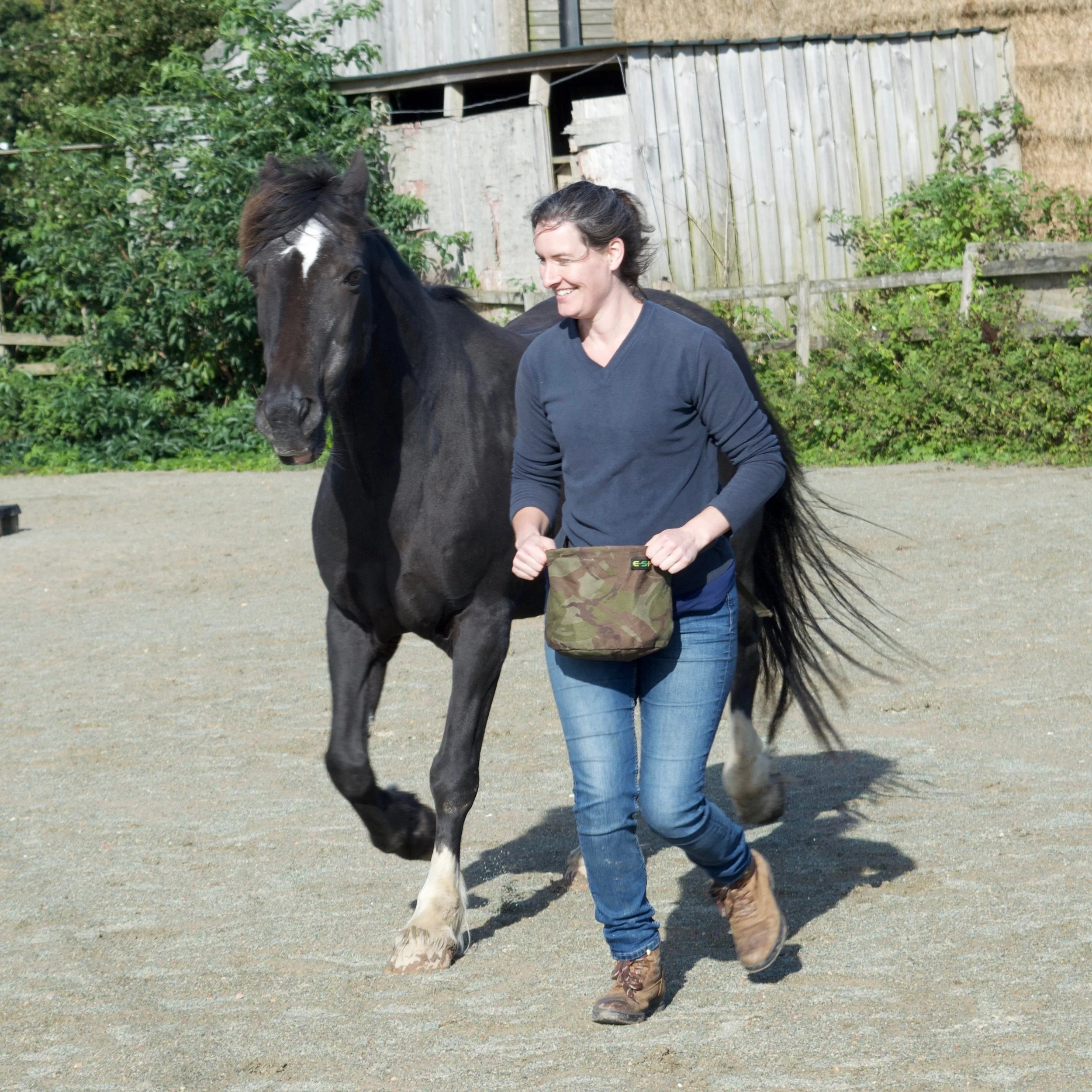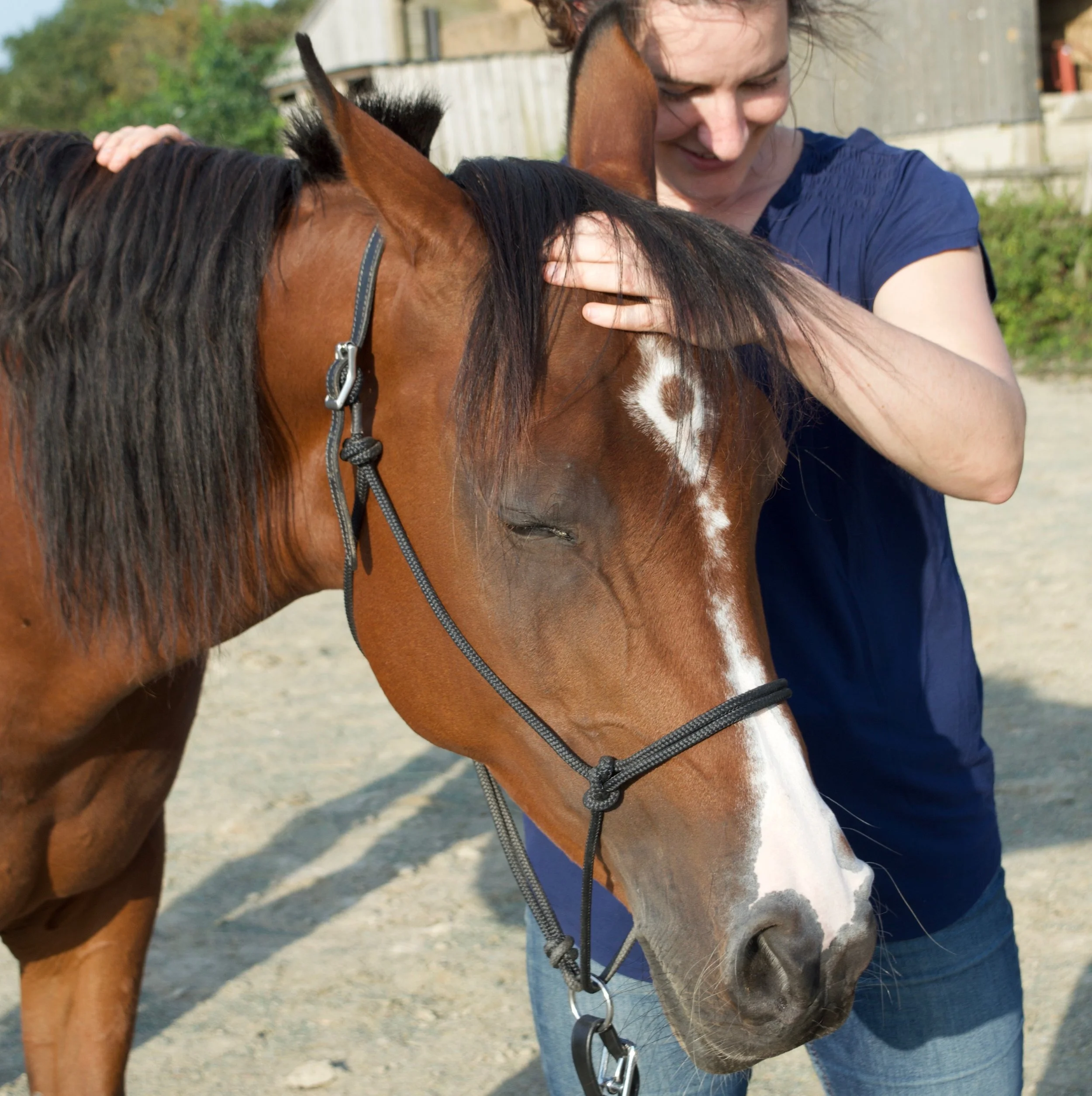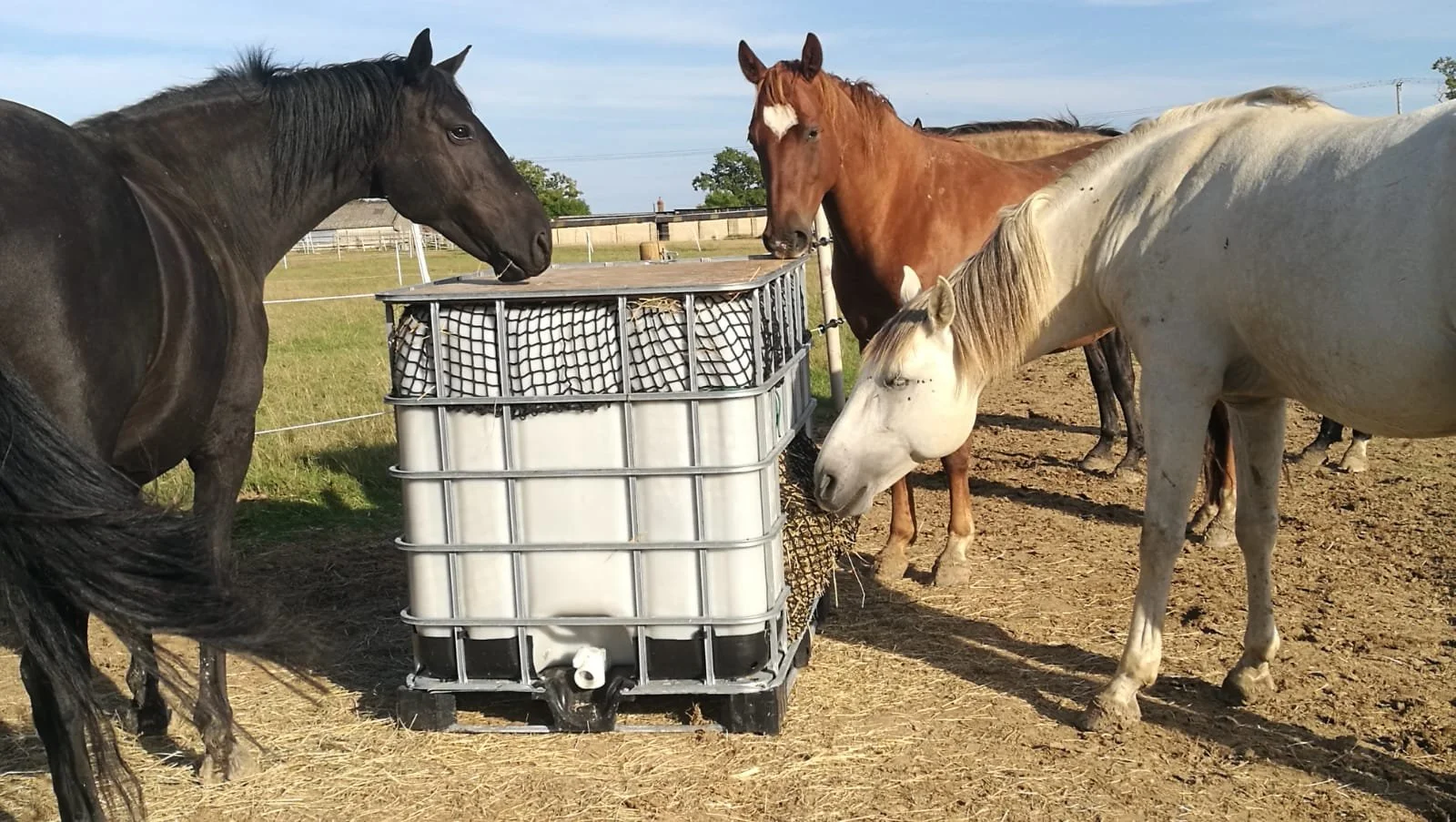In-person lessons and workshops
-

Equisimulator lessons and workshops
Whether you are a total beginner or an established rider, our mechanical Equisimulator allows for you to totally concentrate on your learning without having to worry about directing your horse at the same time. Then you can transfer your skills to your horse. Private lessons and group workshops available
-

Ethical behaviour modification
My approach to “behavioural problems” is two-pronged - address the deep rooted underlying causes, and use ethical training approaches that do not use coercion and that are understandable and sustainable for both of you. Have lessons with me on positive reinforcement training, cooperative care for veterinary and husbandry procedures, or join a group workshop
-

Attuned Assessment
Learn how to read your horse more deeply - my Attuned Assessment approach goes deeper than a conventional veterinary physical examination. It consists of observations of your horse’s posture and movement, body and hoof shape, and behaviours and facial expressions. These observations are done at a distance, hands-on, and using food and scent enrichment stations.
-

Husbandry for Happiness
Have a tour of my facility and come to a workshop on the first of my four deep roots to health and wellbeing - Husbandry for Happiness - how the lifestyle and care we provide for our horses can drive or prevent, induce or alleviate health and behaviour problems in horses and how to practically provide a more species appropriate lifestyle and tailored husbandry for your horse.